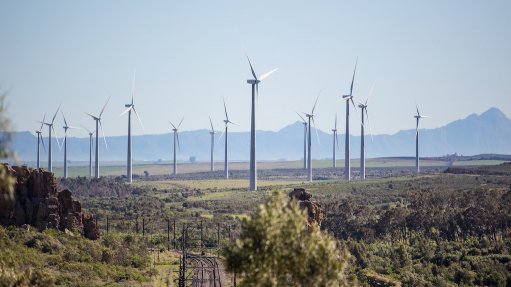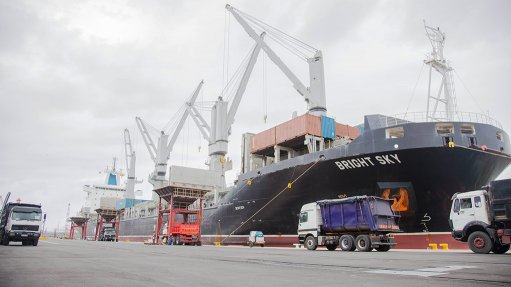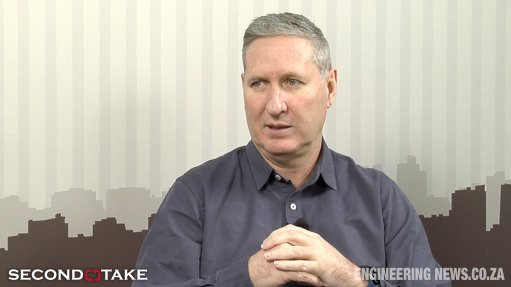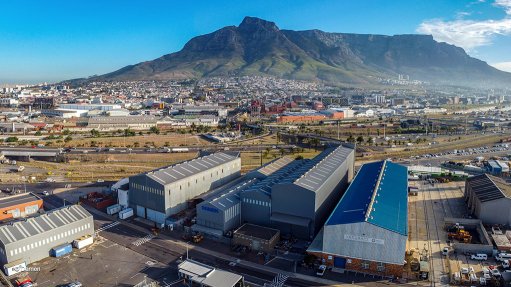Experts unpack the evolution of ESG across the mining value chain
Environmental, social and governance (ESG) has evolved to being driven by external factors such as shareholder activism and investor confidence, rather than regulatory frameworks, finds a panel discussion hosted by Creamer Media on June 26.
ESG strategies are also becoming increasingly data-driven, with quantifiable and measurable outcomes and thorough reporting, which many mining companies are doing voluntarily.
Webber Wentzel associate and panel facilitator Emily Gammon pointed out that data-driven approaches are becoming more prevalent to ESG practices and that data helps to inform targets and measurement thereof.
There seemed to be consensus among mining companies that they should leave a positive, sustainable legacy from the start of operations during exploration through to mine closure, said consultancy SRK Consulting partner Wouter Jordaan.
Some companies embedded ESG in all of their decisions and operations, he stated, adding that mining companies were realising they could be proactive to reduce risks related to ESG.
These risks could be predicted using technology, while technology could also ensure transparency and accountability on stated commitments, Jordaan explained.
Moreover, he said more mining companies were joining organisations such as the International Council on Mining and Metals, which generally had its own set of guidelines for responsible mining and, importantly, responsible closure of mines.
The approach to ESG for smaller mining companies or startups differed from that of major mining companies, said Orion Minerals sustainability and business support executive Marcus Birch, adding that juniors often took a more pragmatic, fit-for-purpose approach owing to limited resources.
With Orion’s projects – Okiep, Prieska and Jacomynspan – based in the Northern Cape, which is a mostly impoverished province from a community perspective, the company got involved with stakeholder engagement and involvement at the outset of exploration.
Birch explained that the social aspect of ESG was especially relevant in South Africa where the private sector was often depended on for socioeconomic development. He added that people were firstly interested in jobs and procurement opportunities; therefore, Orion had helped to prepare its host communities for future mining operations.
Notably, the company has helped to bridge the gaps between the skills and products that are offered from community members, to what will be needed ultimately when mining starts.
Orion appointed a community liaison officer to establish a broad-based stakeholder engagement forum for all its projects. It also has online employment and procurement databases in place that collect information about local capability. The company uses this to formulate training and development programmes.
Orion also vets potential suppliers in host communities, identifying those that have the potential to be developed further as Orion moves into the operational phase of its projects.
The company set itself the targets of 50% local employment and 30% local procurement, which aligns with ESG factors that are baked into legislation related to environmental authorisation and social and labour plans.
Birch said South Africa had a mature ESG regulatory framework, given that these aspects were addressed in many existing pieces of legislation.
Xpotential Mining Services MD Joshua Kilani said the mining industry was taking a leading role on all aspects of ESG, with the stage being set for the industry to become more impactful in this regard as technology evolved.
“The industry has long grappled with matters of sustainability, particularly on the environmental front, with mining having a long legacy of negative environmental impacts such as carbon emissions, pollution and contamination.
“The increased pressure to preserve biodiversity and mitigate climate change are creating business incentives. The socioeconomic and infrastructural development that mining companies offer delivers on the world’s Sustainable Development Goals,” Kilani states.
He agrees with Birch that ESG is already embedded in mining legislation and charters in South Africa, but mining companies are indeed moving beyond compliance towards innovative and unconventional approaches to ensure positive impact for communities and the environment.
BME technology and marketing GM Nishen Hariparsad said ESG was becoming central to how mining companies operated, but also suppliers such as BME. He highlighted a “low-hanging fruit” for companies starting on their ESG journey as being reduced reliance on fossil fuel-generated electricity.
BME has designed its Axxis blasting system to be less electricity-intensive than many other blasting technologies, while ensuring more efficient blasts. “A good blast reduces carbon emissions, eliminates waste in the production chain and enables more efficient mining.
“As suppliers, we also have a duty of care to people and the environment across the value chain of the industry,” Hariparsad stated.
Hypex Bio Explosives Technology CEO Thomas Gustavsson echoed Hariparsad’s sentiment, saying that Hypex had developed ammonium nitrate-free explosives to lower mining companies’ negative environmental impacts.
He said operational and environmental sustainability were intrinsically linked with economic sustainability.
Gustavsson cited the main verticals causing emissions and pollution in the mining industry as being fuels, energy and explosives. He said suppliers were increasingly developing technology that was nondisruptive.
The panellists agreed that the mining industry recognised the importance of leaving a positive legacy, proactively, while operations were ongoing, ahead of closure, for people and planet.
Comments
Press Office
Announcements
What's On
Subscribe to improve your user experience...
Option 1 (equivalent of R125 a month):
Receive a weekly copy of Creamer Media's Engineering News & Mining Weekly magazine
(print copy for those in South Africa and e-magazine for those outside of South Africa)
Receive daily email newsletters
Access to full search results
Access archive of magazine back copies
Access to Projects in Progress
Access to ONE Research Report of your choice in PDF format
Option 2 (equivalent of R375 a month):
All benefits from Option 1
PLUS
Access to Creamer Media's Research Channel Africa for ALL Research Reports, in PDF format, on various industrial and mining sectors
including Electricity; Water; Energy Transition; Hydrogen; Roads, Rail and Ports; Coal; Gold; Platinum; Battery Metals; etc.
Already a subscriber?
Forgotten your password?
Receive weekly copy of Creamer Media's Engineering News & Mining Weekly magazine (print copy for those in South Africa and e-magazine for those outside of South Africa)
➕
Recieve daily email newsletters
➕
Access to full search results
➕
Access archive of magazine back copies
➕
Access to Projects in Progress
➕
Access to ONE Research Report of your choice in PDF format
RESEARCH CHANNEL AFRICA
R4500 (equivalent of R375 a month)
SUBSCRIBEAll benefits from Option 1
➕
Access to Creamer Media's Research Channel Africa for ALL Research Reports on various industrial and mining sectors, in PDF format, including on:
Electricity
➕
Water
➕
Energy Transition
➕
Hydrogen
➕
Roads, Rail and Ports
➕
Coal
➕
Gold
➕
Platinum
➕
Battery Metals
➕
etc.
Receive all benefits from Option 1 or Option 2 delivered to numerous people at your company
➕
Multiple User names and Passwords for simultaneous log-ins
➕
Intranet integration access to all in your organisation




















